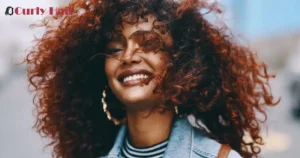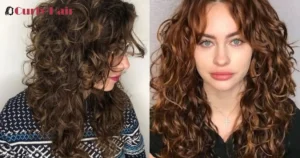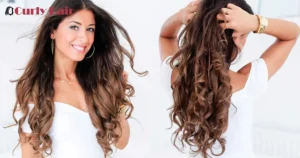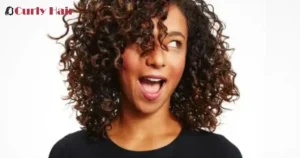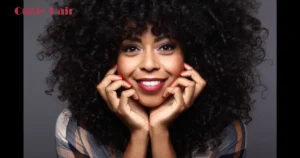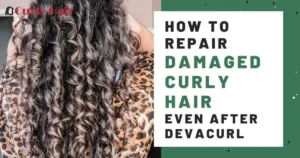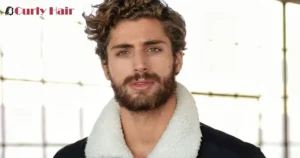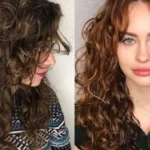Embracing the beauty of natural kinky hair is a rewarding journey. This hair type has unique needs and thrives when given proper care and moisture. To keep kinky hair healthy and growing, it’s crucial to understand which products, routines, and techniques work best. This knowledge helps you manage common issues like dryness, frizz, and breakage that many with kinky hair experience.
With the right approach, you can enhance your natural curls’ strength and shine. Whether it’s selecting nourishing oils or choosing protective styles, each step matters in maintaining healthy hair. This guide will walk you through all you need to know for caring for and growing your hair successfully.
Key Takeaways
- Curly textured hair needs regular moisture to stay healthy and manageable. Use the LOC method and hydrating products to lock in moisture.
- A healthy scalp is key for growth. Regular scalp massages and nourishing oils can improve blood circulation and promote stronger hair.
- Oils like jojoba, castor, and argan are ideal for kinky hair. They keep hair hydrated, reduce breakage, and add shine.
- Protective styles like braids, twists, and buns shield hair from damage. Hair extensions can be used safely to add style without causing stress.
- A balanced diet and adequate water intake strengthen hair from within. Foods rich in vitamins and minerals support natural hair growth.
Essential Care Routine for Kinky Hair Growth
Routine of kinky human hair needs a simple but effective care routine. First, establish a consistent cleansing and moisturizing schedule. Start by using a gentle sulfate free shampoo to avoid stripping your hair’s natural oils. Shampoo once or twice weekly, depending on your hair’s needs. After washing, follow up with a rich, hydrating conditioner. Conditioner helps to detangle and add moisture, which is crucial for kinky hair.
Focus on hydration using the LOC method. This stands for Liquid, Oil, and Cream. Apply water or a water based leave in conditioner first. Follow up with a light oil, like jojoba or castor oil, to seal in moisture. Finally, apply a thick cream to lock everything in. This method prevents dryness and makes your hair more manageable. Adding this to your routine can make a noticeable difference in keeping your curls hydrated and reducing frizz.
The Importance of Scalp Health

Healthy hair growth starts with a healthy scalp. Many people overlook scalp care, but it’s essential for kinky hair. Regular scalp massages improve blood circulation, which promotes growth. Gently massage your scalp with your fingertips or use a scalp brush. Try applying a small amount of oil to enhance the massage.
Using oils on your scalp can provide added nourishment. Choose oils like tea tree oil to soothe and reduce irritation, or peppermint oil for a fresh, clean feel. Apply these oils sparingly, focusing on your scalp rather than the hair itself. Scalp health is a critical part of your hair growth journey, so keep it as a regular part of your routine.
Tips for Maximizing Kinky Hair Growth
- Split ends can slow down growth. Trim every few months to keep your hair healthy and strong.
- Mist your hair with water or a leave in conditioner to keep curls hydrated and prevent dryness.
- Use a satin or silk pillowcase or wrap your hair with a silk scarf to reduce friction and minimize breakage.
- Limit the use of heat tools like flat irons and blow dryers. Air dry whenever possible to protect your hair.
- Nutrient rich foods like fruits, vegetables, and nuts strengthen hair from within and support healthy growth.
Protective Styles for Natural Curls
Protective styling is a popular method for preserving natural kinky hair. These styles help to prevent breakage and shield your hair from the elements. Popular protective styles include braids, twists, and buns. When done correctly, these styles keep your ends tucked away, reducing the chances of damage.
Incorporating hair extensions into your protective style can add length and volume. Extensions offer flexibility, allowing you to try various styles without putting stress on your natural hair. Be cautious to avoid tight braids, as they can lead to breakage. Opt for styles that give your hair room to breathe, and make sure to moisturize your scalp and hair regularly while wearing extensions. Extensions can be a fun way to enhance your look while keeping your natural hair safe.
Choosing the Right Oils for Kinky Hair

Oils play a significant role in the health and appearance of kinky hair. Choose the best hair oil for your curl type to ensure you get the right benefits. Some oils are better suited for kinky textures due to their moisture-retaining properties. Castor oil, for example, is a popular choice for sealing moisture. Its thick consistency makes it ideal for natural hair and helps prevent moisture loss. Use it sparingly, as a small amount goes a long way.
Jojoba oil is another excellent option. It closely mimics your scalp’s natural oils, making it a lightweight choice that nourishes without feeling heavy. You can mix it with essential oils like rosemary, which can stimulate growth. These oils keep your hair hydrated, reduce breakage, and add shine. Regular use of the right oils can improve the look and feel of your kinky curls.
The Role of Diet and Nutrition in Hair Health
Healthy hair starts from within. What you eat affects your hair’s strength and shine. Foods rich in vitamins and minerals support hair growth. Include foods like spinach, nuts, and eggs in your diet. These contain essential nutrients for strong hair.
Drinking enough water is also key. Hydration from within shows up in your hair’s health. Aim to drink at least 8 glasses a day. Combined with a balanced diet, it will make a difference. When your body is well nourished, your hair will grow better.
Frequently Asked Question
What does it mean if your hair is kinky?
Kinky hair has tight, small curls or coils, often with a zigzag pattern.
What ethnicity has kinky hair?
Kinky hair is commonly found in people of African descent, but occurs across various ethnicities.
What is kinky in hair?
Kinky hair is tightly coiled, textured, and requires extra moisture for manageability.
Why does hair turn kinky?
Hair turns kinky due to genetics, which influence hair texture and curl pattern.
Conclusion
Caring for natural kinky hair requires patience, consistency, and a deep understanding of its unique needs. When you focus on regular moisture, the right oils, and gentle products, your hair becomes more manageable and healthier over time. Embracing a consistent routine that includes proper hydration and protective styles supports growth and reduces breakage.
With a few adjustments, you can keep your hair strong and vibrant. Adding nourishing oils, maintaining scalp health, and protecting your curls at night make a big difference. Remember, each step is essential in preserving your curls’ natural beauty.


